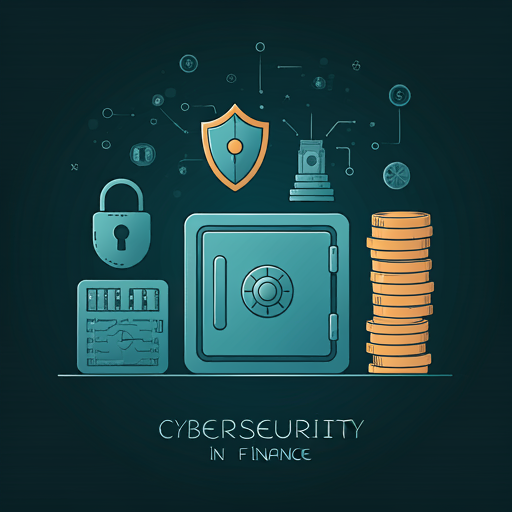Introduction to Cybersecurity in Finance
The Importance of Cybersecurity
Cybersecurity is crucial in finance due to the increasing sophistication of cyber threats . Financial institutions face risks such as data breaches and identity theft. These incidents can lead to significant financial losses and damage to reputation. Protecting sensitive information is essential for maintaining trust.
Consider the following statistics:
These figures highlight the urgency of robust cybersecurity measures. Every organization must prioritize security protocols. It’s a matter of survival. Cybersecurity is not optional; it’s essential.
Overview of Financial Cyber Threats
Financial institutions face various cyber threats, including phishing and ransomware attacks. These threats can compromise sensitive data and disrupt operations. He must recognize the potential for significant financial loss. Awareness is key. Statistics show that 90% of data breaches result from human error. This fact underscores the want for comprehensive training.
Understanding Cryptocurrency Securuty
How Cryptocurrencies Work
Cryptocurrencies operate on blockchain technology, which ensures transparency and security. Each transaction is recorded in a decentralized ledger. He benefits from reduced fraud risk. This system enhances trust among users. Additionally, cryptographic techniques protect user identities. Security is paramount in this digital landscape. Understanding these mechanisms is essential for safe transactions.
Common Vulnerabilities in Cryptocurrency
Cryptocurrencies face several vulnerabilities, including exchange hacks and wallet thefts. These incidents can lead to substantial financial losses. He must remain vigilant against such risks. Additionally, smart contract flaws can expose users to exploitation. Understanding these weaknesses is crucial for effective risk management. Security measures are essential for protecting assets.
Types of Cyber Threats in Finance
Phishing Attacks
Phishing attacks are prevalent in the financial sector, targeting sensitive information through deceptive emails. These tactics can lead to unauthorized access to accounts. He should always verify the source. Additionally, spear phishing is a more targeted approach, often aimed at high-profile individuals. Awareness is crucial for prevention.
Ransomware and Malware
Ransomware and malware pose significant threats to financial institutions, often encrypting critical data and demanding payment for access. These attacks can disrupt operations and lead to substantial financial losses. He must implement robust security measures. Additionally, malware can steal sensitive information, further compromising security. Awareness and prevention are essential.
Best Practices for Safeguarding Assets
Using Strong Passwords and Two-Factor Authentication
Using strong passwords and two-factor authentication is essential for protecting financial assets. Weak passwords can easily be compromised, leading to unauthorized access. He should create complex passwords. Two-factor authentication adds an extra layer of security, requiring a second verification step. This method significantly reduces the risk of breaches. Security is paramount in finance.
Regular Software Updates and Security Patches
Regular software updates and security patches are critical for maintaining cybersecurity in financial systems. Outdated software can expose vulnerabilities that cybercriminals exploit. He must prioritize timely updates. Security patches address known weaknesses, significantly reducing the risk of breaches. Ignoring these updates can lead to severe financial repercussions. Prevention is always better than cure.
Secure Storage Solutions for Cryptocurrency
Hot Wallets vs. Cold Wallets
Hot wallets are connected to the internet, providing easy access for transactions. However, this connectivity increases vulnerability to cyber attacks. He should consider the risks involved. In contrast, cold wallets store cryptocurrency offline, offering enhanced security against hacking. This method is ideal for long-term storage. Security is a upper side priority for investors.
Hardware Wallets: Pros and Cons
Hardware wallets provide robust security for cryptocurrency storage, protecting private keys from online threats. This makes them less susceptible to hacking. He should weigh the benefits carefully. However, they can be costly and less convenient for frequent transactions. Users must also manage physical security. Security is paramount for serious investors.
Regulatory Framework and Compliance
Understanding Financial Regulations
Understanding financial regulations is essential for compliance in the cryptocurrency sector. These regulations aim to protect investors and ensure markft integrity . He must stay informed about changes. Non-compliance can result in severe penalties and reputational damage. Regulatory frameworks vary by jurisdiction, complicating adherence. Awareness is crucial for successful operations.
Compliance Best Practices for Cryptocurrency Businesses
Compliance best practices for cryptocurrency businesses include implementing robust anti-money laundering (AML) and know your customer (KYC) procedures. These measures help mitigate risks associated with illicit activities. He should prioritize thorough customer verification. Regular audits and risk assessments are also essential for maintaining compliance. This approach ensures adherence to evolving regulations. Staying informed is critical for success.
The Role of Blockchain in Cybersecurity
How Blockchain Enhances Security
Blockchain enhances security through its decentralized and immutable nature. Each transaction is recorded across multiple nodes, making tampering difficult. He should recognize the importance of this feature. Additionally, cryptographic techniques protect data integrity and user identities. This technology significantly reduces the risk of fraud. Security is a fundamental advantage of blockchain.
Challenges and Limitations of Blockchain Security
Blockchain security faces challenges such as scalability and energy consumption. As networks grow, transaction speeds can decrease significantly. He must consider these limitations. Additionally, while blockchain is secure, it is not immune to attacks, particularly at the application layer. Understanding these vulnerabilities is essential for effective risk management. Awareness is crucial for users.
Future Trends in Cybersecurity for Finance
Emerging Technologies and Their Impact
Emerging technologies like artificial intelligence and machine learning are transforming cybersecurity in finance. These tools enhance threat detection and response capabilities. He should embrace these innovations. Additionally, blockchain technology offers improved transparency and security for transactions. Understanding these advancements is vital for staying competitive. Innovation drives progress in financial security.
Preparing for Future Cyber Threats
Preparing for future cyber threats requires proactive strategies and continuous education. He must implement regular training for employees. Additionally, adopting advanced security technologies can enhance defenses against evolving threats. Staying informed about emerging risks is essential for effective risk management. Awareness is key to maintaining security.

Leave a Reply